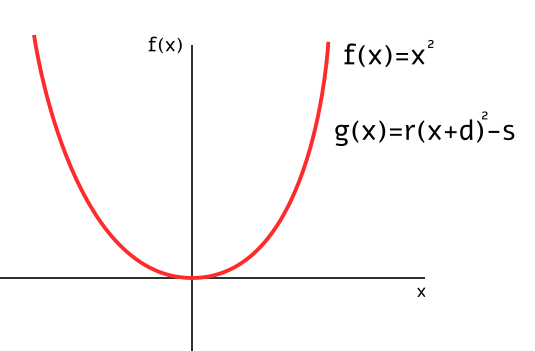Quadratics Are Not Injective: Proof
2024-08-24 | tags : Proof | Quadratics | Proof
We're using the same technique of the previous post in which we showed that linear functions are injective. Again, all this is overkill, but I love exploring these avenues.
We are using this statement saying that if the output of a function on two numbers is equivalent, then the two numbers must be different. With some rearrangements (see this previous post)
$$(f(a) = f(b)) \land (a \not = b) \tag{1}$$
the question is whether \((1)\) is true for the function \(f(x) = x^2\).
We start by using two numbers that are different: \(a\) and \(b\). The number \(b\) can be re-written as
$$b = a + \epsilon \tag{2}$$
where \(\epsilon \in \mathbb{R} \land \epsilon \not = 0\)
We then apply the two different numbers \(a\) and \(b=a + \epsilon\) to the function \(f(x)=x^2\) to get
$$f(a) = a^2$$
$$f(a + \epsilon) = (a + \epsilon)^2$$
we expand \(f(a + \epsilon)\) to get
$$a^2 + 2a\epsilon + \epsilon^2$$
According to \((1)\) we suppose that \(f(a) = f(b)\) therefore we know that
$$a^2 = a^2 + 2a\epsilon + \epsilon^2$$
which simplifies to:
$$2a\epsilon + \epsilon^2 = 0$$
$$\epsilon (2a + \epsilon)= 0$$
$$\epsilon = -2a \tag{3}$$
We can rearrange \((2)\) as \(\epsilon = b - a\) and plug it into \((3)\) to get
$$b-a = -2a$$
$$b = -a$$
We started with the negation of the statement about injectivity and we confirmed that the negation is true, therefore we accept statement \((1)\) as true. Looking at the graph of the power function (power of 2) we see that \(f(a)=f(b)\) when \(b = -a\).
Indeed, this applies to the power of two function \(f(x)=x^2\). However, when quadratics are rearranged in the completed square form \(r(x+d)^2-s\) we see that they are scaled and translated forms of the function \(f(x)=x^2\), so the proof can be extended to quadratics, too.